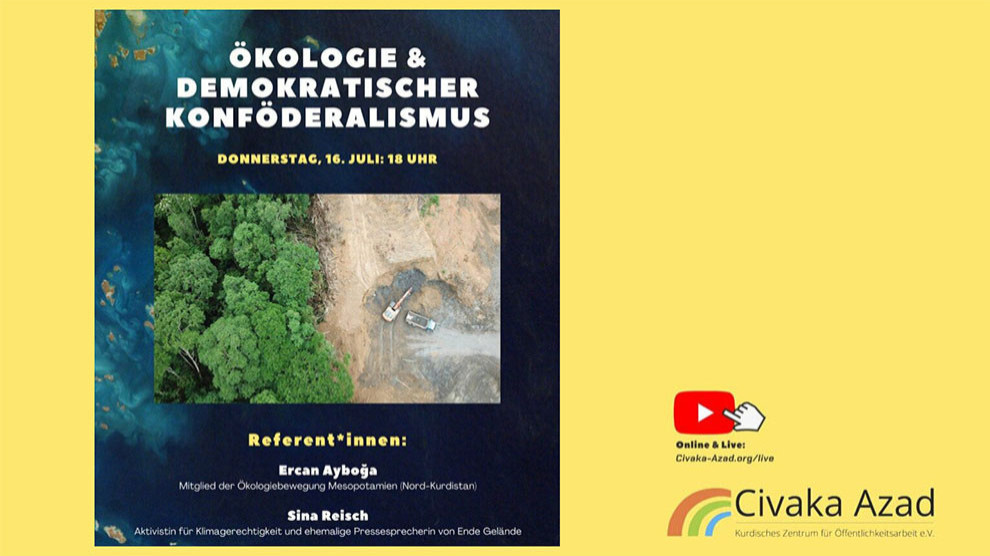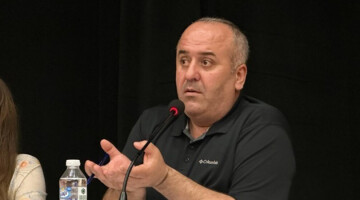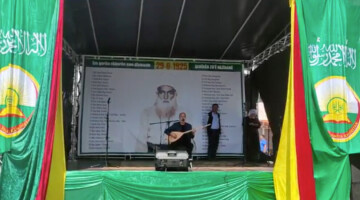"A wave of protest goes around the world to protest against the destruction of nature and man-made climate change. A global ecological protest movement refuses to stand idly by and watch the destruction of the environment. The protests are a first and important answer to the global climate crisis, which cannot be talked down anymore", says the announcement of the online event: Ecology & Democratic Confederalism of the Kurdish Centre for Public Relations Civaka Azad. Speakers of the event, which starts on Thursday 16 July at 6 pm, are Ercan Ayboğa, member of the Mesopotamia Ecology Movement (Northern Kurdistan), and Sina Reisch, activist for Climate Justice and former press spokeswoman of Ende Gelände.
The statement continues:
"Also, or perhaps especially in the Middle East, the connections between ecological and social oppression are obvious. The exploitation of oil by imperialist countries, huge dams that lead to the desertification of entire regions, and the contamination by chemical weapons of war are just a few examples. An ecological movement has also grown up in some parts of the Middle East in response to the destruction of nature in recent years. It is still a small movement, but it is capable of raising the crucial questions.
Ecology was from the beginning also one of the ideological pillars of the radical democratic awakening in Rojava, which from the beginning was also meant as an ecological new beginning. The goal: decentralized agriculture, energy supply and waste disposal within the municipal system. A vision already thought out by people like eco-socialist Murray Bookchin and Abdullah Ocalan. This vision, which Abdullah Öcalan summarized under the concept of democratic confederalism, is now being put into practice in Rojava, Northern and Eastern Syria.
In our event we want to build the pillar of ecology in the concept of democratic confederalism and build a bridge to the ecological protests in Germany and Europe.
Why does ecology play such a central role in democratic confederalism? What can we learn from ecological change in North-East Syria and how can we support it from here? Can the idea of democratic confederalism, with its three pillars of grassroots democracy, ecology and gender liberation, also offer a solution to the ecological and social crisis of the 21st century in Europe? What are similarities and differences to the European climate justice movement?"














